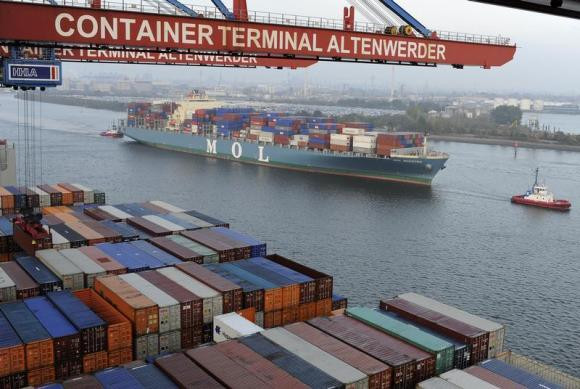German trade surplus dwindles arresting euro recovery

German trade surplus dwindled at the start of the year as exports fell more than expected, as the focus shifts to the eurogroup meeting later today.
Exports by the largest eurozone economy declined 2.1% at the start of the year after rising 2.8% in December. Imports dropped 0.3%, compared to the previous month's 0.7% fall.
Analysts had been expecting a fall of 1.2% in exports and a 0.6% rise in imports. The trade balance came in at €19.7bn ($21.38bn) from €21.6bn in December compared to a market consensus of €21.1bn. The current account balance dropped to €16.8bn from €25.6bn.
The euro was slightly off the 12-year low touched on 6 March ahead of the German data but showed weakness after the numbers were released. The EUR/USD moved to 1.0861 from the previous close of 1.0849 in early Asian trade but slipped to 1.0857 after the data.
The market focus is now on the German inflation data for February due on 12 March.
However, the eurogroup meeting later in the day, to be attended by the eurogroup president, the finance minister of each member state and the president of the European Central Bank, will be the nearest event to watch.
French and Italian industrial output for January and Greek inflation data for February will be released on 10 March and then French non-farm payrolls for the fourth quarter and Portugal's inflation will be out on 11 March.
But with a light data calendar overall, events like speeches by some Fed officials earlier in the week can also be crucial as the better than expected US jobs data may prompt them to comment on the likelihood of the US hiking rates earlier than expected. The US weekly jobless numbers will also be key for the single currency.
The February producer price index and the March Reuters/Michigan consumer confidence index are other two US numbers that could impact markets this week. Both the data are due on 13 March.
© Copyright IBTimes 2025. All rights reserved.






















